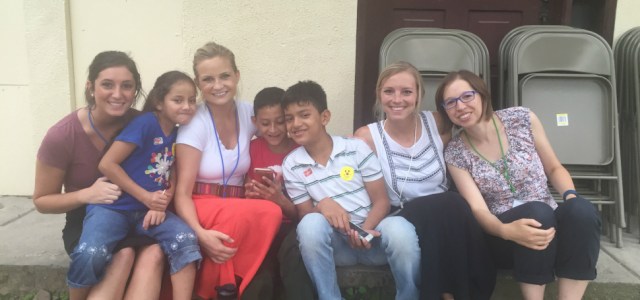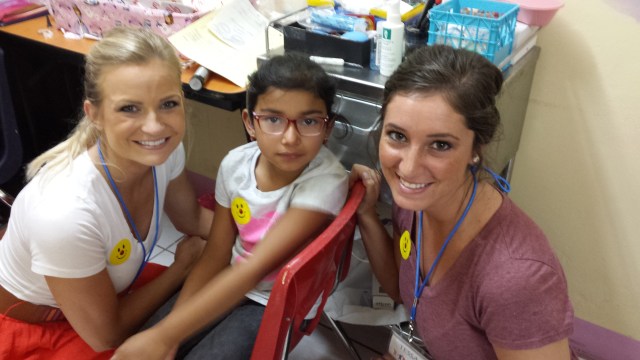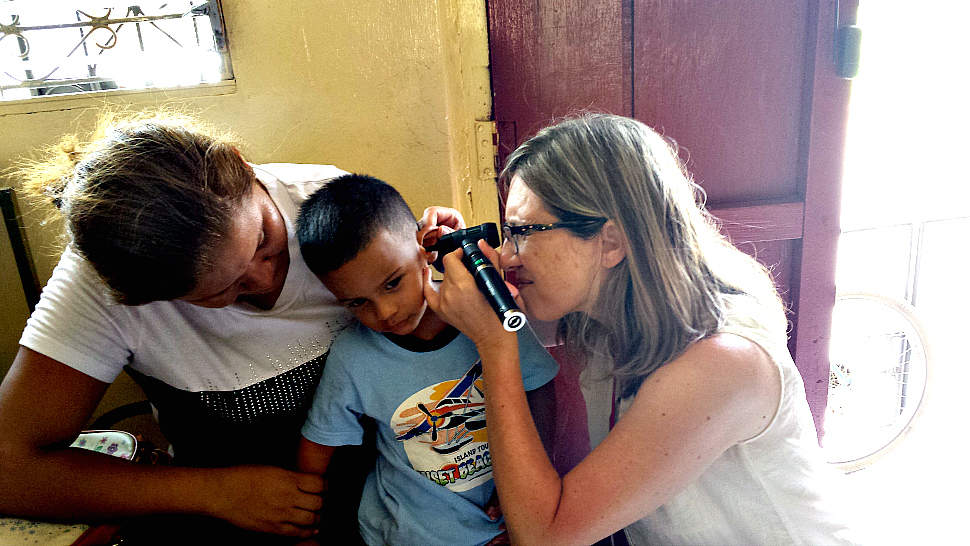Adam Fluck, September 17, 2016
It?s been nearly ten years since Stacie Ray, an associate professor in audiology at the University of Nebraska - Lincoln established HearU Nebraska, an in-state program that provides hearing aids to children whose families cannot afford them. In that time, HearU Nebraska has dispensed approximately 500 hearing aids to over 300 children across the state.
Now, with a significant program established within the U.S., Ray has turned to an area outside the country as a way to expand its impact.
In August, Ray and Hannah Ditmars, another assistant professor of audiology, along with four students seeking a doctorate in audiology, spent a week in Nicaragua attending to 140 patients in three communities.

As they met with numerous young individuals in the Central American country who had never previously had the opportunity to hear, it was clear their efforts were paying off as they delivered hearing aids to people who would not otherwise have them.
Some of the individuals Ray and her team are helping in Nicaragua are in their teens and early twenties as opposed to the younger children she treats in the U.S.
?[In the U.S.], we usually catch them at a very young age and now with universal newborn hearing screening, we can get them fit with hearing aids as young as three months,? says Ray.
Resources in Nicaragua for the deaf and those with special needs in general are limited and in many cases the individuals who cannot hear are unable to be educated through traditional means. Now, thanks to HearU, they can sit aside their friends in the classroom.
?To see older children and young adults now have opportunities that they could [not] have been afforded in terms of going to school and learning like the rest of society were some of the takeaway moments for me,? says Ray.
The idea for HearU dates back 25 years ago to when Ray was a young mother who was pursuing her bachelor's degree in psychology from the University of Nebraska - Kearney. When her own child was diagnosed with hearing loss and she needed to purchase a hearing aid, an expense of more than $4,000, she found herself in an extremely difficult position.
?I decided that was something that should not happen,? explains Ray. ?Hearing aids are something that should be paid for by insurance. Unfortunately they are not, at least not for children in our state.?
In 2007, that vision became a reality with the creation of HearU, which provides two hearing aids, ear molds and batteries for a year to each patient. It also pays dispensing fees to the audiologist and purchases a care kit for parents to take care of the hearing aid. The program?s efforts are made possible thanks to donations and state funding through the Early Hearing Detection and Intervention Program.
While Ray was pleased with the impact HearU was able to make in the state of Nebraska, she wanted to reach further while also expanding the horizons of her students.
?I?ve always wanted to branch out and expose our students to more cultural diversity,? says Ray. ?We felt that going to Nicaragua would give the students more of a cultural understanding and a perspective from a developing country that is much different than how it is in the United States.?
Last summer, Ray and Ditmars visited Nicaragua to connect with various organizations and see where they could best provide their services. According to Ray, it didn?t take them long to understand they could essentially go anywhere in the country and be embraced with open arms.
Not only is Nicaragua, home to more than 6 million people, one of the poorest countries in Central America but according to Ray there is only one known full-time audiologist in the entire country.
When Ray and Ditmars returned this summer with the students, they made their way through the communities of Jinotega, Leon and Quezalguaque and saw as many patients as they could.

?They were very busy days, very long and very hot with no air conditioning,? recalls Ray. ?Each community was unique in its own way and we enjoyed going to all three.?
They were also able to network, an important element for the program?s sustained success in Nicaragua. Mayflower Medical, a nonprofit organization based out of Oklahoma City, had previous worked in the country. HearU followed their lead, then visited places it had not been.
?We also trained individuals to be able to take care of the hearing aids while we are not there,? Ray explains. ?Hopefully, those trained will train others. That?s one of the things we hope will happen over the course of the next several years.?
As for its efforts in Nicaragua, HearU is just getting started. It will be back in the same three communities next year and it eventually hopes to expand to other parts of the country.
Beyond that, since the inception of HearU, the University of Nebraska - Lincoln now offers a humanitarian audiology course which aims to provide the tools necessary in order for students to effectively and efficiently provide services to low income individuals in developing countries.
?We are hoping to open the eyes of our students to ways in which once they become a licensed professional they can reach out and help others, not only in their local community but beyond,? notes Ray.







 Watch multiple mats live Saturday from the Big Ten Wrestling Championships.
Watch multiple mats live Saturday from the Big Ten Wrestling Championships. 